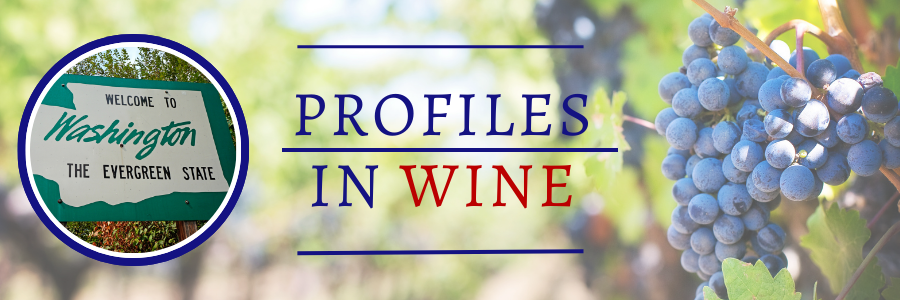Washington State is like a mini-California and a maxi-New York.
It is by far the second largest grape and wine producing state, though its 836 wineries are only about a fifth of California’s 4,795—but nearly twice New York’s 470. And the growth has been explosive: When I came to the industry 41 years ago, New York was a clear #2 and Washington a distant #3, but a combination of visionary wineries, effective organizations, and a collaborative spirit have shaped today’s success.
Washington also has 20 AVA’s (California 147, New York 11), and enjoys several major factors favoring grape and wine production. Its latitude at 46 degrees (between Burgundy and Bordeaux) is ideal in terms of temperature ranges for many different grape varieties. The lack of rainfall, and abundant sunlight east of the Cascade mountains, combine for superb ripening with little disease pressure. Glacial and Volcanic soils are ideal hosts for vines, and Washington has an abundance of own-rooted vineyards.
Chateau St. Michelle, part of Ste. Michelle Wine Estates, provided vision, collaboration, and coattails for the early growth of the Washington wine industry, with leaders like Allen Shoup and Ted Baseler understanding how the winery and the state industry were inextricably linked. Besides producing a large amount of high quality wines distributed internationally, boosting the image of Washington as a serious wine region, they supported the industry in numerous ways, and served as a wedge to help other producers enter markets. The current situation involving significant cutbacks in future grape purchases will be a challenge for the industry and its various organizations.
DeLille Cellars in Woodinville recently celebrated its 30th anniversary as a top producer of Bordeaux style blends under the philosophy that “all good blends transcend the sum of their individual parts”. With a particular focus on grapes from the Red Mountain AVA, DeLille was among the first five wineries in Washington to receive a five star rating from Robert Parker. The winery also features a superb restaurant where WineAmerica had its Fall Retreat dinner last year, a truly memorable occasion.
L’Ecole No. 41 in Walla Walla has been a flagship for quality, collaboration and leadership since its founding in 1983 by Jean and Baker Ferguson, joined in 1989 by their daughter Megan and her husband Marty Clubb, and then their children Riley and Rebecca—a three generation operation. Named after the Historic Frenchtown Schoolhouse it occupied, L’Ecole No. 41 was only the third winery in Walla Walla, and the 20th in Washington—where there are now over 800. Their sustainable vineyards produce high quality grapes resulting in extraordinary wines recognized around the world. Marty received the Rich Smith Award Excellence in January, recognizing “Passion, Commitment, Collaboration” for his years of leadership in multiple state and national organizations, including WineAmerica.
In addition to many great wineries, Washington State has several effective trade associations on state and regional levels, including the Washington Winegrowers Association, Washington Wine Institute, Walla Walla Valley Wine Alliance, and others. In addition, for many years the Washington Wine Commission, funded with industry assessments administered by the state, has been a major reason why the reputation for quality has spread far and wide across the United States and world. Last, but by no means least, Washington State University has had a robust, largely industry funded, viticulture and enology capability supplemented by smaller but effective programs at smaller institutions.
Great Grapes: Merlot
Many years ago I had the pleasure of participating in a seminar titled, “Merlot Magic”, at the Kapalua Bay Wine Festival in Hawaii which compared Long Island and Washington wines, with the latter presented by the late wine writer Tom Stockley. Oh, and there was Hawaiian Vintage Chocolate in the mix as well. The audience loved it, which is no surprise: What’s not to like?
The film “Sideways” dealt an unfair blow to Merlot, but Washington vintners have consistently shown how truly great this wine can be. With roots in Bordeaux, Merlot has softer tannins than Cabernet Sauvignon, resulting in a velvety essence in taste and mouthfeel, and also making it a good blending partner with Cab and in “Meritage” wines.


